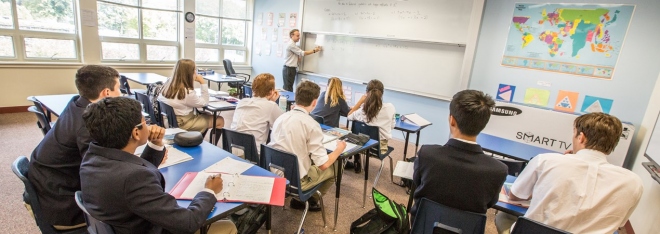Today one of the biggest problems that college and university students face is perfecting the balance of the joy and practicality of learning in the classroom. It might seem a difficult prospect, but both the aspects can run hand-in-hand given the students are allowed to acquire education in a less polarized environment and society that encourages the democratic functions and various perspectives to be taken into account.
Given the already paramount workload and different coursework commitments in undergraduate and postgraduate degree programs, it is utterly important for students to find joy and relevant applicability of their learning, if they are to acquire the needed skills and expertise and compete in an ever- competitive global industry.

We already know that taking a semester or a year abroad and engaging in a specific field helps the students in this regard. But here are some further considerations that you need to understand and accomplish your goal in the name of joy and applicability in learning.
- Try to explore the campus’s resources as thoroughly as possible
The entire point of examining and taking interest in the campus’s resources is to build your interest in different things. The simplest thing might be taking a course in creative writing, in case you are interested to become a custom assignment writing help specialist in the future. However, stepping out of the classroom can provide you a number of things to work for, such as, contributing an article for the yearly newsletter of your institute, learning new forms of music, doing yoga, acting in stage plays, or even learning to cook.
- Selecting a minor is in fact, broadening
The suggestion applies for both related and unrelated fields to your major. For instance, pursue a Calculus Level 1 course in support of your “Quantitative Modelling” course in economics. The content learned in the minor mathematics course will help strengthen your command on a seemingly tedious and challenging course in a manner not matched by even the best in the class.
- If an opportunity to do an honors thesis arises, take it
The point is to experience how an independent research goes by. An independent project helps the students develop the much needed self-confidence and acquire the intellectual and critical thinking ability, hence, directing the learner to a quality learning experience throughout the degree program. Remember, refining your skillset well before you step in your career is a gateway towards professional excellence and experiencing the true applicability of the things learned both in and out of the class.
- Consider the junior years as the period for preparation and maturation
The opportunities in the junior years come in different forms, such as those to enhance your personal and intellectual growth through better competencies and skillset. Even a fraction of learning and completion of complex courses and electives normally not sought by everyone in the class will give you enough confidence to take on advanced courses in your major. As stated above, the point is to uplift your leadership skills that you will use to take part in different extracurricular activities.
As a senior or sophomore, you will come to realize that your junior semesters were more about preparing yourself and balancing your joy and practicality of learning. Consider yourself having learned some music, attended lectures in the psychology research lab, learned basic German as your minor, and done a couple of internships in different departments in two different companies. Each of this thing learned (besides your core major courses) is going to give you that added artillery in your learning arsenal and make you stand out in the real practical life competition.
- What you do in the summer months between the junior and sophomore years is vital
Most colleges and universities provide a break of a couple of summer months each year. Students should realize that this is a valuable time not to be wasted simply by sleeping extended hours, making irrelevant trips, playing video games, finishing all the seasons of Game of Thrones, etc. Rather use the 2-month interval and pursue an internship in an area of your interest. This is a great opportunity to build your pre-career skills, get ready for job placement even before attending your graduation ceremony, and acquire top references from established names in the industry.
Apart from gaining experience for future employment or further studies, the idea is to build your network that will help you with job placement after graduation.